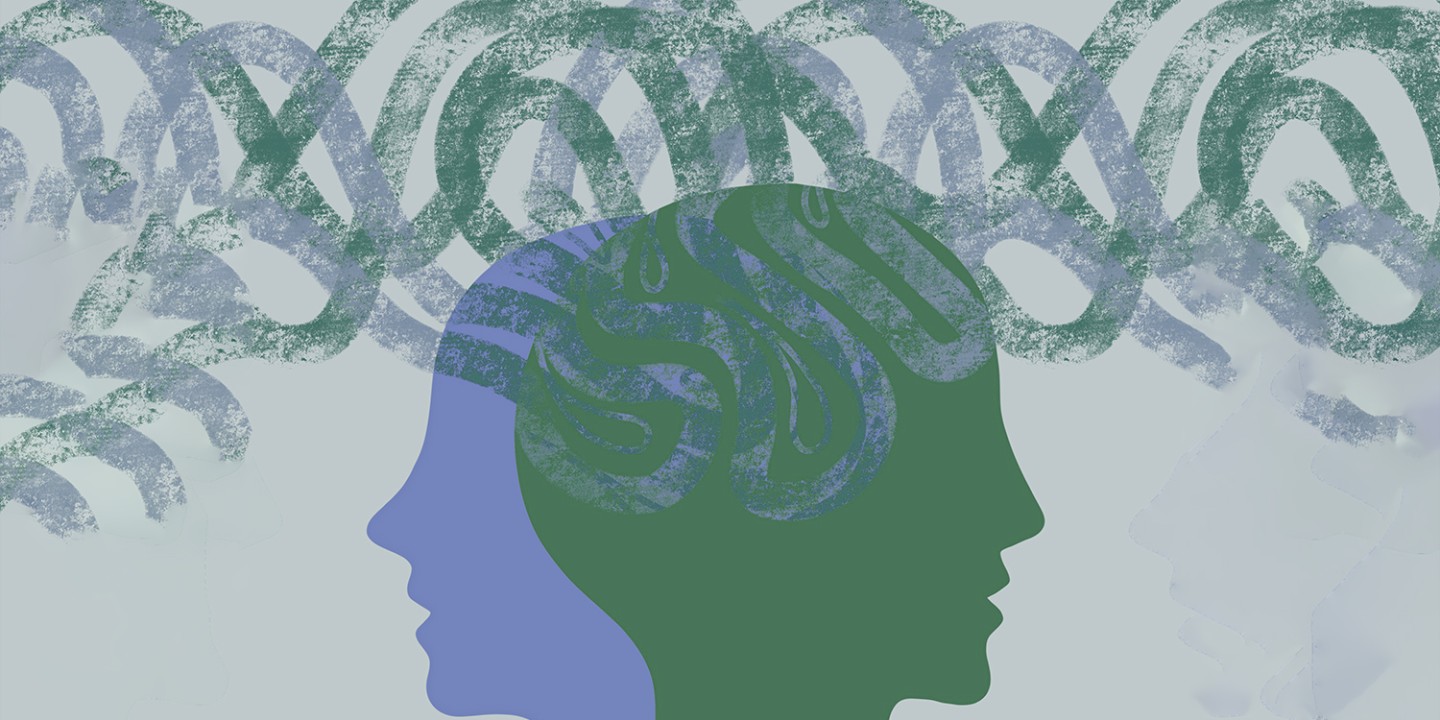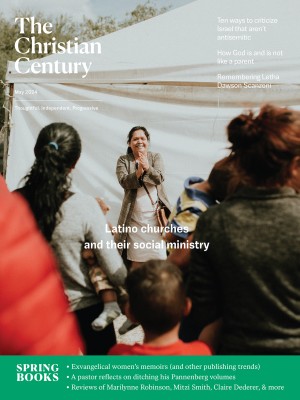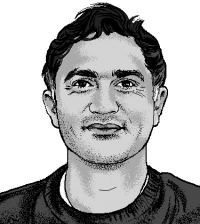Speaking in two tongues
Growing up bilingual primed me to see the gifts offered at Babel and Pentecost.

(Source image: Kateryna Kovarzh / iStock / Getty)
I grew up with two languages, with my mind shifting back and forth. We spoke English at home because my parents wanted my sister and me to be proficient in the dominant idiom of this new country. However, every day my mom would drop me off with my Costa Rican grandparents while she went to work. While my grandfather had learned enough English to run his bicycle shop, my grandmother spoke only Spanish. Her idioma tica became my other home. I’d spend my day in her world.
To grow up in two worlds, to feel one push into the other, to feel at home in both and in neither, to belong somewhere in between in a linguistic borderland—that was my experience as a child of immigrants. Those early years set up the patterns of my thinking. We always think in a language—and in my amalgamated mind, one thought world jostles with another and neither feels exactly right. I blame my slowness as a writer on this jostling in my head. Which is also to blame, at least I tell myself, for a looming fear of grammatical mistakes, of embarrassing myself. ¡Que vergüenza, que pena! I had to take a remedial writing class my first semester of college.
Read our latest issue or browse back issues.
Occasionally, when speaking English, I get stuck as my mind scrabbles along the edges of my memory, insisting that only a particular Spanish word will communicate exactly what I’m trying to communicate. The other day, while talking in English with a friend, I couldn’t shut off the voice in my head maintaining that ganas was the only word that would say what I needed to say. I still can’t think of a good way to translate ganas. Visceral willpower? A guttural drive? A fire in the belly?
Over the years, when I’ve returned to Colombia or Costa Rica to visit family, for the first week my head throbs as my mind purges English from my thinking. After a week, I ease into a world of Spanish. I begin to remember words I didn’t know that I knew, pieces of language that have been dormant. Soon I dream in Spanish, my body at home in the linguistic environment of my family.
When I was around ten years old, another Latino kid and I were playing with our Spanglish during summer camp at an evangelical church near our house. A staff member scolded us, perhaps out of frustration at his inability to understand us. “I bet you two can’t even do math in English,” he said. “You should be speaking our language.” The absurdity confounded me. I’d replay the scene in my mind, trying to sort out if numbers and the rules for math really varied from language to language.
“We are your linguistic nightmare, your linguistic aberration.” In Borderlands/La Frontera: The New Mestiza, Gloria Anzaldúa describes her status as a Chicana. “Because we speak with tongues of fire we are culturally crucified.” Language and nationalism go together, one reinforcing the other. The connection is as old as Babel. “And the Lord said, ‘Look, they are one people, and they have all one language’” (Gen. 11:6). One people, one language—the achievement of a national culture flattens difference in order to smooth out a population, to make governance more efficient and statecraft more impressive.
Augustine notes that the civic unity of worldly polities depends on histories of violence and coercion. “The Imperial City has been at pains to impose on conquered peoples not only her yoke but her language also, as a bond of peace and fellowship,” he writes in The City of God. The languages in which people negotiate their collective life come from somewhere—an imposition, Augustine acknowledges, that enables communication. “But think of the cost of this achievement,” he writes. “The scale of those wars, with all that slaughter of human beings, all the human blood that was shed!” Language is a battlefield. Our tongues have always been the terrain of struggle.
In the Babel story, God responds to the people’s unified language with multiplicity. God diversifies their tongues. God’s no to the tower is a yes to the irreducible variety of creation. This divine intervention is a blessing, not punishment. Babel becomes the site where God works out a vision of redeemed life, the wonders of human diversity—a diversity that mirrors God’s nature as an “us.” This is the same God who swept over the face of the deep at the beginning, in the first chapter of Genesis, and made human beings in the divine, differentiated likeness (1:26). Humanity’s multiplicity images the multiplicity within God. The aftermath of Babel restores differentiation as God’s vision for creation, earthly life as bearing the likeness of heavenly life.
What God does at Babel prefigures the events of Pentecost in the book of Acts. The work of the Holy Spirit has already begun in God’s affirmation of linguistic and cultural differentiation at Babel. Later, at Pentecost, God descends in a rushing wind, alighting the friends of Jesus with the fire of heaven, empowering them “to speak in other tongues” (Acts 2:4). There, on the streets of Jerusalem, foreigners hear the gospel in their own languages. The people are astonished at the sounds of their homeland in the mouths of these strangers.
God does not speak in a universal language. God does not impose or coerce unity. Instead, the Spirit of God communicates in every tongue. Every dialect is holy, every accent revelatory—the incarnation of God’s living Word expressed in a plurality of mouths and tongues. God indwells differences without converting the multitudes into sameness. People do not give up their languages, their cultures. Instead, God affirms the holiness of human differentiation: “I will pour out my Spirit upon all flesh” (2:17). All flesh receives the baptism of the Spirit, not to force people into a cultural nationalism but to consecrate every ethnic difference.
The book of Acts tracks the migration of the Holy Spirit as the gospel wanders through peoples and across lands. Evangelism is an intimate transmission, born in a diversity of lives, as collectives entrust each other with the deposit of faith—the differentiated life of God revealed in the flesh. The church, in the multiplicity of our tongues, becomes the body language of God.






